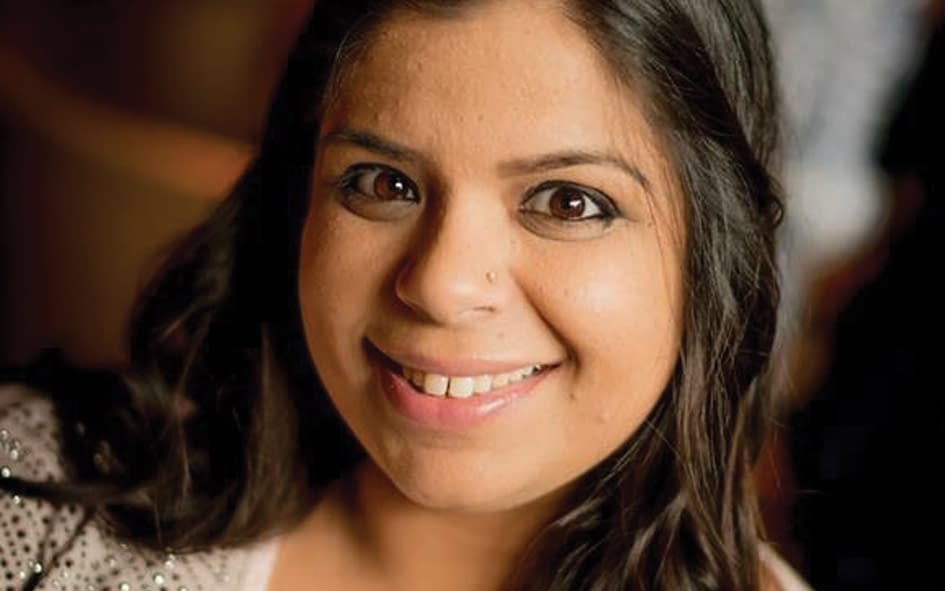Chairperson of the Minority Ethnic Staff Group (Enfield sector) Richasheds light on the unseen side of front line social work: not just as a social care expert, she is a guardian of the child care law; bigger than her heart, must be the sharpness of her mind; and as important as sensitivity also is the drive to be professional. As we looked further into some of the ins and outs of Richa’s career – her observations of models of childcare in the country and her bi-cultural experiences to name a few topics - it became clear that being a real hero is to be grounded in real life:
Have you always been interested in social work?
Yes, always. I have always done my humble bit to contribute to society and change the world for the better- talking in a broad sense. My Masters degree in social work from the University of Delhi just over a decade ago however provided me the initial springboard for pursuing social work professionally. Post qualifying modules in social work from various UK universities have further equipped me with the values, principles, techniques and tools to really intervene in British society as a frontline expert to facilitate improvements and change. I continue to commit to this more and more each day.
Tell me more about the two big projects you have going on right now?
As the Chairperson of MESG, I am working with a committee team to raise the profile for minority professionals as a collective and we also discuss the representation of the group members in senior roles . We are busy organising meetings and events so that the opinions and concerns of this network are noted and channeled. It's an exciting and busy time with lots to be done under this umbrella in a constructive way.
Also, outside of work, for a year now I have volunteered a lot of my time and effort in trying to set up a UK chapter for the alumni association of the prestigious Lady Shri Ram College where I completed my graduate degree in 2002. It’s one of the top colleges for women across India and Asia, with about 55,000 alumni all over the world. We have such high-achieving and illustrious alumni based in the UK and it's been great to organise a range of networking events to give a platform for all of us to connect. Im working on organising a TED x talk later in the year on the theme of Women's narratives with some focus on the challenges to feminist struggles in the Indian context.
What have been some of your proudest moments and/or awards?
I have been nominated for Asian professional awards for excellence in public service to be held later this year and I'm excited to attend this event.
However I feel social work is more a profession where the ability to make a quantified difference to lives is so rewarding -seeing the children I work for smile when we get things right for them, feels like an award, each time that happens!
Does creativity come into your field?
Very much so. Despite the fact that the legislation and organisation structure needs to be adhered to at all times but there is still space for creativity on how one conveys and translates that in a sensitive and creative manner to the diverse group of service users so as to meet their unique needs.
How have you felt your degree has complimented your career in practice?
To a huge extent. It surely has provided the theoretical underpinning to my practice and it trained me to work in any type of setting.
What have you felt like are some of the most important aspects of working for the government as a child rights professional?
UK as a welfare society has a very strong ‘every child matters’ policy that the country endorses. It is a system that is so structured, focused and formatted. It's been a great learning experience of working within the defined paradigm of social work framework yet finding spaces for creativity in the workplace especially when it comes to direct work with children in need.
What has been an important social issue that still needs attention?
The sexual exploitation of children. This issue needs more research, intervention and attention. The scale of abuse, the extent of violation, the racquet of perpetrators and the numbers reported in terms of victims is grim but still far from actual which are estimated to be far higher by the authorities.
What can people do more in terms of civic responsibility?
Being aware of having civic responsibilities is the first step! Reporting anything that doesn't appear right to authorities goes a long way in achieving safeguarding outcomes.
Finally, do you have a personal motto to keep going?
Keep trying, keep doing and keep believing!



